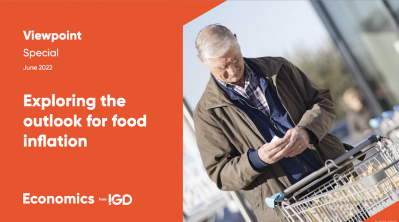Food and drink industry saves £365m of food from going to waste

Launched in 2018, the roadmap outlines the route the UK food industry should follow to achieve UN Sustainable Development Goal 12.3 and halve food loss and waste by 2030.
More than 200 of the UK’s large food businesses, with around 60% of UK food industry turnover, have reported on their actions to prevent food from entering the waste stream. Those businesses with year-on-year data have achieved an impressive 17% average reduction in food waste.
Roadmap businesses generated 90% of the increase in UK food redistribution between 2018 and 2020, saving 26,000 tonnes more food in 2020. This food had a value of more than £50m and would have provided the equivalent of over 60m meals.
Measuring and managing food waste
Commenting on the progress of the roadmap, WRAP director of collaboration and change David Moon said: “The high financial value of food saved by Roadmap businesses illustrates the importance of measuring and managing food that gets wasted.
“Given current commercial pressures on food businesses, this should be on the agenda for every CEO and Finance Director. Governments have said they will consult on making the reporting of food waste mandatory; I would encourage businesses to get ahead of policy and reap the rewards of adopting good practice.”
The number of producers and manufacturers committing to the Roadmap has more than quadrupled since launch, from 47 to 209. More than 130 producers and manufacturers shared data for more than one year and overall their food waste has reduced by 18% compared to their baselines.
Waste levels increased
While WRAP did report that 40% of food manufacturing businesses saw food waste levels increase compared the baselines, this was largely attributed to disruptions caused by the outbreak of COVID-19 in 2020.
Dispute difficulties created by the outbreak of COVID-19 and other disruptions, 267 businesses and 47 supporting organisations have signed up for the roadmap, an increase of 25% in committed businesses compared with September 2020.
Susan Barratt, chief executive of IGD, said: “Against a hugely challenging backdrop, the Food Waste Reduction Roadmap has continued to make significant progress in 2021, demonstrating the enormous appetite our industry has to drive positive change and be a force for good.
“As well as the environmental and social imperative for businesses to reduce their food waste, there’s also a compelling business case. Driving efficient supply chains and reducing waste should be a priority for businesses; it makes financial sense, helps communities, and is a key way businesses can deliver Net Zero climate targets.”

















